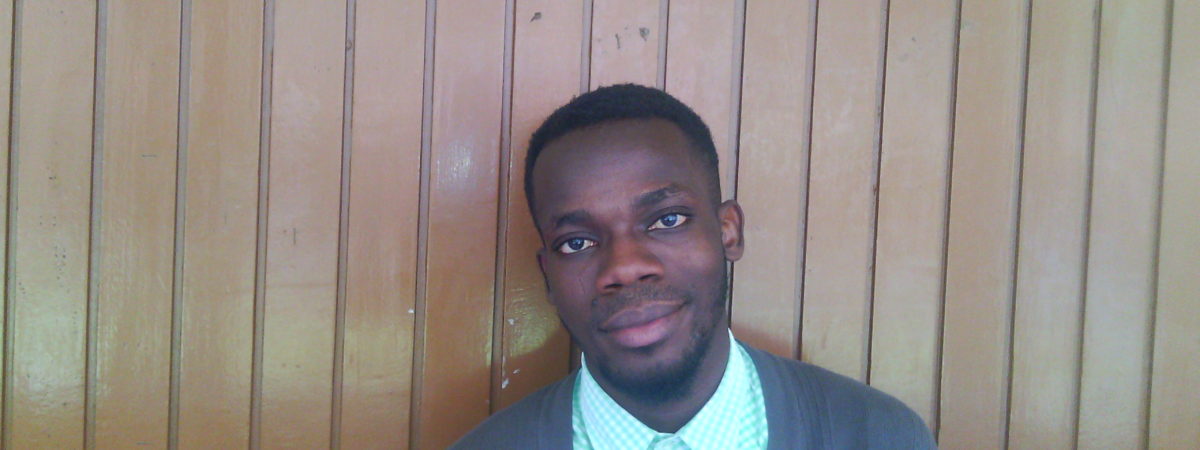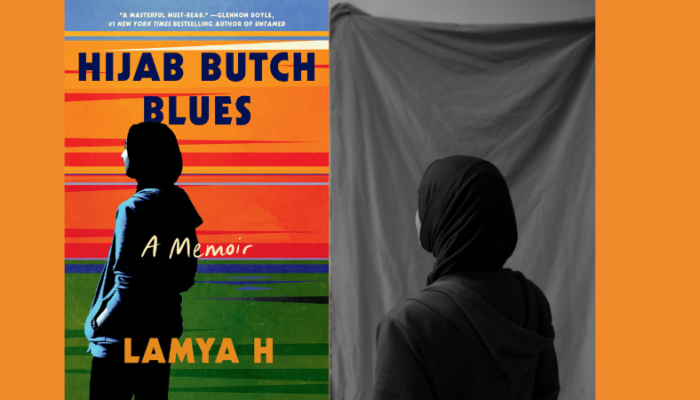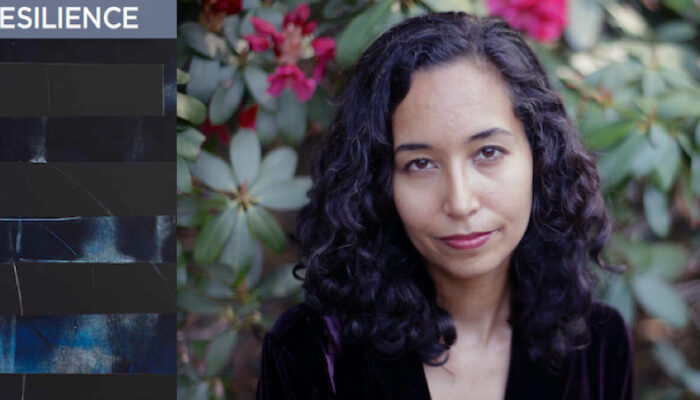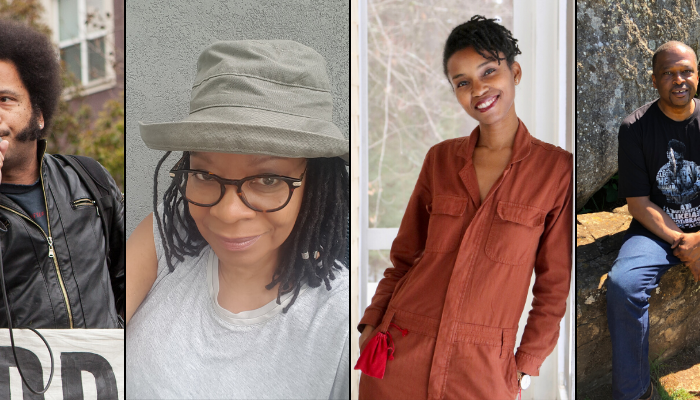Kelly Tsai is a spoken word poet, writer, performer and director, whose latest work AI WEI WEI: THE SEED is an exploration of Chinese contemporary artist Ai Weiwei’s early life in New York City. The performance traces the years before Weiwei became internationally renowned for his provocative, political art. Apogee Editor-at-large Melody Nixon talked with Tsai about her upcoming show and whether art and politics can ever be separated.
Melody Nixon (MN): How did you first come across Ai Weiwei’s work?
Kelly Tsai (KT): Back in 2012 I was in Taipei, Taiwan, and I saw Ai Weiwei’s exhibit at the contemporary fine arts museum there. When I was walking through the exhibit I saw all these photos of street corners that I knew in Brooklyn and the East Village and I was like, “wait a second, what are these?” Then I realized that Ai Weiwei had actually spent much of his 20’s and 30’s (1981-1993) in NYC as a young artist, which I thought was really interesting.
MN: That inspired you to investigate his life story?
KT: Yes. With a little more research, I found out that his father was a political poet and he also was friends with many important political poets both in the U.S. and China, like Allen Ginsberg and Bei Dao.
MN: How did the idea for a performance piece grow from that?
KT: As a spoken word poet, the ways that political poetry shapes and moves people are always interesting to me. So when I saw that the exhibit at Brooklyn Museum was going up — Ai Weiwei: According to What? — I was really passionate about creating this piece that can help New Yorkers see Ai Weiwei for the New Yorker that he is, and how the spirit of NYC/East Village and also political poetry has had a global impact through him.
MN: You connected with his story because he was a young artist in NYC, of the Chinese diaspora, and he had political roots, as well as a political practice. Do you consider yourself a political artist?
KT: Coming up in the spoken word poetry scene, poetry and politics have always been deeply intertwined. So many people from marginalized perspectives who don’t feel like they have a voice come to this art form. For me a very personal desire — to express how I felt through poetry — has allowed me to connect with people all over the world. Diaspora to me is the fact that even though all of our experiences may be so different, there is some kind of resonance based on family roots coming from one place. I think it’s an important word, and a beautiful one – that we are all a part of something beyond where we presently are.
MN: What do you think of the term artivist?
KT: Hmmm… artivist… I think there’s a lot of different ways people can integrate arts and activism. I don’t think one term would necessarily be accurate for everyone who does politically engaged work.
MN: Please elaborate. What are other ways people can integrate arts and activism?
KT: I think there are some folks who are artists who create work related to political themes and issues. There are some folks who create work with communities to create a community generated artistic product. There are some folks who connect their creative work to legislation, i.e. in the case of Upton Sinclair’s The Jungle. Then, some folks are artists who create work related to political themes and issues – like Suzanne Collins, who wrote the Hunger Games as an anti-war book.
MN: Can art and politics ever really be separated, though?
KT: I agree there’s always a political component to what artists do, but some artists are active and interested in engaging in the politics that are raised by their work, and others are not. So I think there’s a difference.
MN: I am thinking of a quote by Kiese Laymon, which we used in the introduction to the latest issue of Apogee. He said that choosing to separate politics from art (literature, in this case) is a function of privilege. What do you think about that idea?
KT: I think to be able to have enough language around privilege to identify it as privilege is also privilege. I just did an amazing collaboration with the dance company Urban Bush Women for NYC Summerstage, and I was having long convo’s with Jawole, their founder, choreographer, and artistic director. She was mentioning that the dynamic of creating art is so different when you feel that the lives of your community are on the line, which I totally agree with.
MN: That’s a great point. It seems to me you’ll be engaging with a lot of different communities in your latest project, AI WEI WEI: THE SEED – local and international, contemporary and historic.
KT: Absolutely. Hybridity is a huge part of all of our experiences. Especially here in NYC.
MN: You’re a poet, performer and director. You combine all of these elements in the show this week. What can viewers expect to see?
KT: The Seed is a combination of spoken word, music, dance, and video. The text is a combination of ‘found poems’ from Ai Weiwei’s blogs and interviews, meaning his words have been re-edited and re-arranged into poems to tell the story of his life that is less known than the last few years where he’s had a lot of media attention.
MN: How will that look visually?
KT: In real time on the stage that means there are three live performers doing text and movement and two musicians (one violinist, one on MPC/drum pad). We are blessed to be in the Auditorium space at Brooklyn Museum, so there is a big projection screen that will have different kinds of video illustrating the mood and feeling of his life throughout the majority of the text.
MN: And the text is spoken?
KT: There are spoken word poems synthesizing the emotional experience of Ai Weiwei’s life and also our relationships to the themes brought up for each of us as artists of the Chinese diaspora living in NYC.
MN: You have an amazing lineup of collaborators on the project: Jessica Chen (Choreography), Jason Kao Hwang (Music), Adriel Luis (Spoken Word, Video, Music), and Kit Yan (Spoken Word). How has it been working with these folks?
KT: It’s been so exciting to be in the collaboration process with them and feel everything that they bring to the project, whether it’s deep roots in spoken word in the case of Kit and Adriel, or Jason’s experience as an experimental jazz violinist and his wisdom having been a part of the NYC loft scene in the 80’s and 90’s, or Jessica’s incredible choreographic intelligence… it’s been really fun and also a very personally driven process. Through Ai Weiwei’s story I do think we’ve gotten to know ourselves, and what it means to do artistic work you’re passionate about.
MN: After all this work, why hold the show for just one night?
KT: In this era of digitally driven, time-shifted entertainment, I think people can’t really grasp that this could happen one time and then perhaps never again, which is the beauty and strangeness of live performance. You can’t DVR it. You can’t just replay the link. We are actual real human people who want to share an evening in person with you, telling this amazing story of a person who has really fought to understand who he is in the world and how he can contribute to the world in a way that’s consistent to his spirit and his soul.
MN: Ai WeiWei really is an inspiring figure for politically motivated artists.
KT: Yes. And I think this show is for anyone who’s ever questioned their place in the world, who’s ever wanted to find the courage to stand up for what they believe in, who’s ever tried to make sense of all their different experiences in their lives to create one cohesive whole.
AI WEI WEI: THE SEED runs for one night, this Thursday July 24th at the Brooklyn Museum. Doors at 630pm, performance at 730pm. Free to museum members or tickets are $18 from Museum Tix. RSVP on FaceBook. For more information click here.
*
KELLY ZEN-YIE TSAI is an award-winning writer, performer, and director based in Brooklyn, New York. Her work as a spoken word poet has been featured at over 600 venues worldwide including the White House, HBO, MTV Iggy, Lincoln Center, and the Kennedy Center. She has performed at events featuring thought leaders and artists like Bill Clinton, Harry Belafonte, and Tyra Banks. Her work has been profiled on HBO.com, NPR’s “The Brian Lehrer Show,” NPR’s “State of the Re: Union,” Huffington Post, and Gothamist. Visit her website here.






